On September 10th in Hanoi, the National Data Association, in collaboration with the Institute for New Generation Intelligence Technology and Education (IGNITE) and other partners, organized the workshop "AI Strategy and National, Organizational and Enterprise Data Architecture" (ASDA 1).
The workshop aims to create a forum for in-depth exchange, where scientists , businesses, and policymakers can discuss, analyze, and seek consensus on strategic approaches to AI and data development in the coming period.
At the conference, Associate Professor, Dr. Nguyen Ai Viet - Director of the Institute of New Generative Intelligence Technology and Education (IGNITE) - stated that this is a momentous occasion for Vietnam - an opportunity for our nation to rise to strength and prosperity as technology, geopolitics , the will of the leadership, and the aspirations of the people converge.
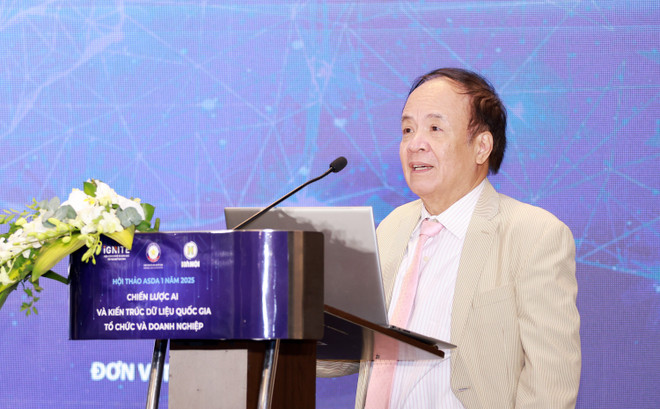
"Each of us needs to ask ourselves: what have we done in this moment? If five years ago, many plans were just distant hopes, today history has moved forward with lightning speed, from institutional changes and the enactment of new laws to the rise of large technology corporations, creating national strength," said Associate Professor, Dr. Nguyen Ai Viet.
Recalling the words of General Secretary To Lam, Associate Professor and Doctor Nguyen Ai Viet argued that countries that grasp data – the crucial resources and means of production for the digital economy – will break through, while those who "miss out" will fall behind.
According to the Director of the IGNITE Institute, the world has officially entered a new era, and Vietnam cannot stand aside. "This will not be a path paved with roses – we will encounter institutional barriers, ingrained habits, the complexity of systems, culture, and challenges to innovation. But it is in these difficulties that the intellect and resilience of the nation will shine," affirmed Associate Professor, Dr. Nguyen Ai Viet.
He also emphasized that to achieve this, Vietnam cannot simply rely on slogans and movements, nor can it become a factory for others. What we need is a renewal of strategic thinking, a scientific architecture, and the unity of the entire population.
Agreeing with this viewpoint, Mr. Tran Van Khai, Vice Chairman of the National Assembly's Committee on Science, Technology and Environment, pointed out that current laws are insufficient to regulate the issues raised by AI.
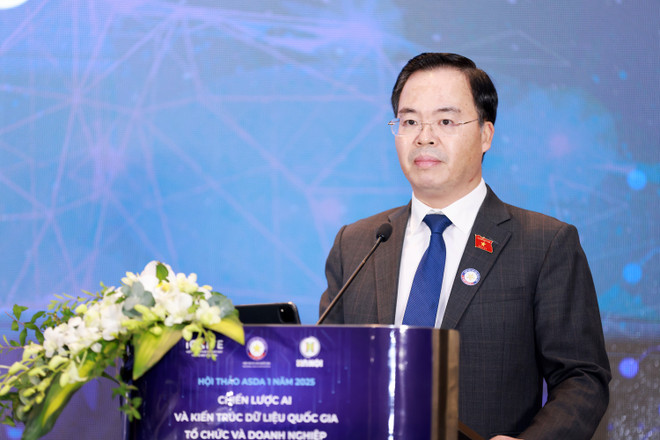
"Resolution 57 sets a target for Vietnam to be among the leading countries in Southeast Asia in AI by 2030. To achieve this goal, an AI Law needs to be enacted soon. The period of 2025-2026 is the appropriate time to create a legal framework for the development and management of AI," Mr. Tran Van Khai emphasized.
According to him, Vietnam's AI law needs to codify important policies such as the principle of humanistic AI, ensuring AI serves humanity, respecting privacy and ethical values; risk management and transparency, mandatory labeling of AI-generated content to prevent fake news; data infrastructure; promoting innovation, allowing sandbox testing for AI applications in a controlled environment, and clearly defining the legal responsibilities of developing organizations and individuals.
Regarding data issues, Major General Nguyen Ngoc Cuong - Director of the National Data Center, Vice President of the National Data Association (Ministry of Public Security) commented that countries that can effectively collect, process, and exploit data will have a competitive advantage in the global economy. With a large population and a rapid pace of digital transformation, Vietnam possesses a vast "data treasure."
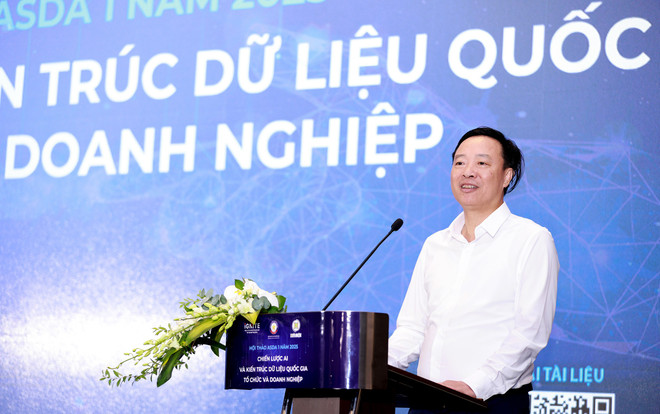
According to the Major General, data is the fourth factor of production after labor, capital, and land. In particular, it can increase the efficiency of these three traditional factors through optimizing labor, capital efficiency, and efficient land use.
However, Vietnam is also facing significant challenges in data governance. These include a large amount of data but a lack of connectivity, data sovereignty, and governance. A notable risk is "data colonization," where a large portion of citizens' data is stored on foreign platforms. This can lead to three serious consequences: technological dependence, value drain, and security risks.
Major General Nguyen Ngoc Cuong highlighted three key tasks: building a unified data governance system based on four pillars—institutions, technology, processes, and people; developing comprehensive data mining capabilities; and building a sustainable data ecosystem that creates a network of stakeholders who all benefit—the State, businesses, universities and research institutes, and the people.
At the conference, speakers shared the view that AI and data are no longer purely technological fields, but core factors determining national sovereignty, competitiveness, and standing in the new era.
Vietnam can only fully utilize its "data treasure" and AI potential by transforming its vision into concrete laws, strategies, and actions, instead of remaining merely slogans.
Source: https://www.vietnamplus.vn/chien-luoc-ai-va-du-lieu-la-chia-khoa-dinh-doat-tuong-lai-cua-quoc-gia-post1061030.vnp


![[Photo] Prime Minister Pham Minh Chinh receives Lao Minister of Education and Sports Thongsalith Mangnormek](/_next/image?url=https%3A%2F%2Fvphoto.vietnam.vn%2Fthumb%2F1200x675%2Fvietnam%2Fresource%2FIMAGE%2F2025%2F12%2F16%2F1765876834721_dsc-7519-jpg.webp&w=3840&q=75)
![[Image] The tenacious fighting spirit of Vietnamese women's football](/_next/image?url=https%3A%2F%2Fvphoto.vietnam.vn%2Fthumb%2F1200x675%2Fvietnam%2Fresource%2FIMAGE%2F2025%2F12%2F17%2F1765990260956_ndo_br_4224760955870434771-copy-jpg.webp&w=3840&q=75)

![[Photo] Prime Minister Pham Minh Chinh receives the Governor of Tochigi Province (Japan)](/_next/image?url=https%3A%2F%2Fvphoto.vietnam.vn%2Fthumb%2F1200x675%2Fvietnam%2Fresource%2FIMAGE%2F2025%2F12%2F16%2F1765892133176_dsc-8082-6425-jpg.webp&w=3840&q=75)
![[Live] 2025 Community Action Awards Gala](/_next/image?url=https%3A%2F%2Fvphoto.vietnam.vn%2Fthumb%2F1200x675%2Fvietnam%2Fresource%2FIMAGE%2F2025%2F12%2F16%2F1765899631650_ndo_tr_z7334013144784-9f9fe10a6d63584c85aff40f2957c250-jpg.webp&w=3840&q=75)
![[Image] Leaked images ahead of the 2025 Community Action Awards gala.](/_next/image?url=https%3A%2F%2Fvphoto.vietnam.vn%2Fthumb%2F1200x675%2Fvietnam%2Fresource%2FIMAGE%2F2025%2F12%2F16%2F1765882828720_ndo_br_thiet-ke-chua-co-ten-45-png.webp&w=3840&q=75)





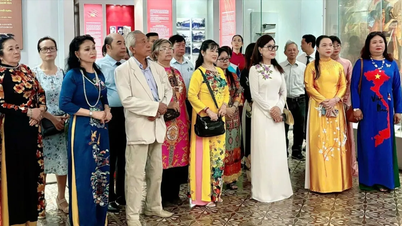



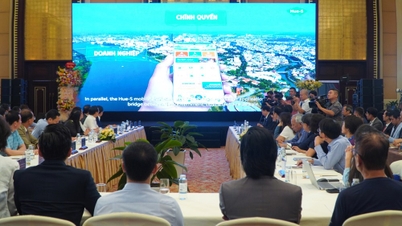































































![[Live] Closing Ceremony and Award Presentation for the "Impressive Vietnam Tourism" Video/Clip Creation Contest 2025](https://vphoto.vietnam.vn/thumb/402x226/vietnam/resource/IMAGE/2025/12/17/1765974650260_z7273498850699-00d2fd6b0972cb39494cfa2559bf85ac-1765959338756946072104-627-0-1338-1138-crop-1765959347256801551121.jpeg)

























Comment (0)